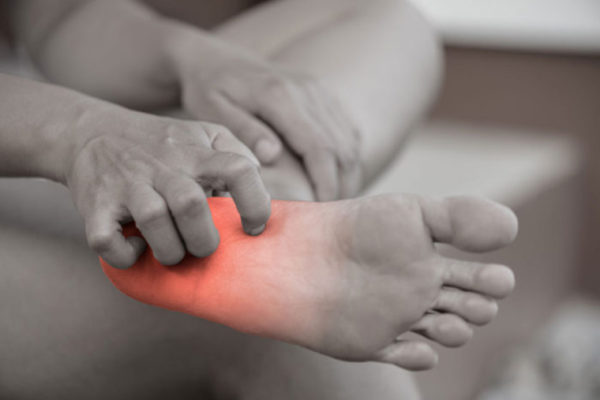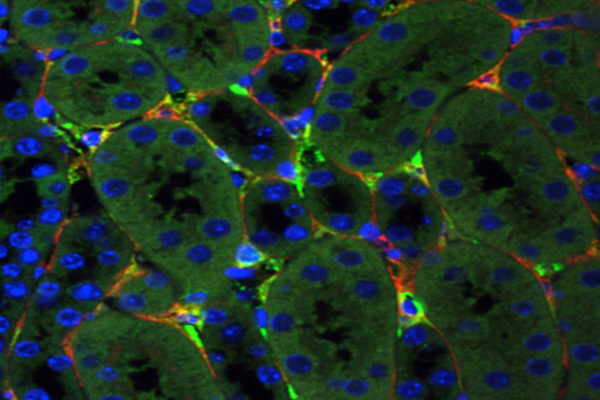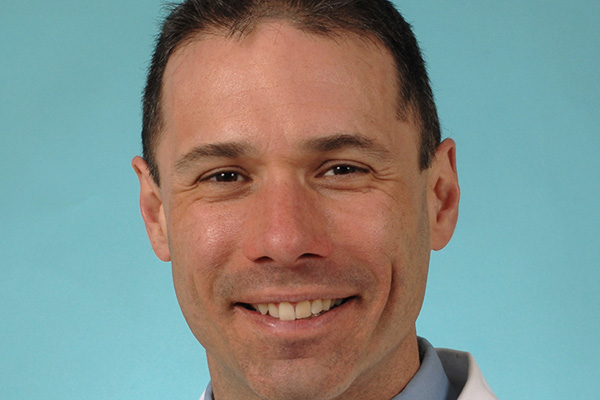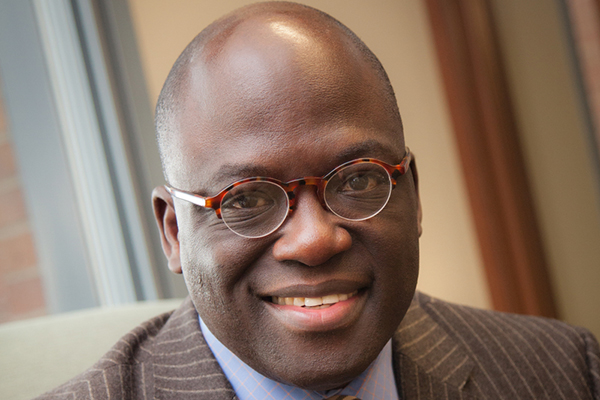Non-opioid drug relieves pain in mice, targets immune cells
Researchers at the School of Medicine have found that inhibiting a receptor on immune cells called macrophages may help relieve pain in some patients, particularly those with chronic neuropathic pain, such as those with conditions like diabetic neuropathy.
Gene therapy method developed to target damaged kidney cells
Research led by the School of Medicine has shown, in mice, that genetic material can be delivered to damaged cells in the kidneys, a key step toward developing gene therapy to treat chronic kidney disease.
Loneliness found to be high in public senior housing communities
Older adults living in public senior housing communities experience a large degree of loneliness, finds a new study from the Brown School at Washington University in St. Louis. Nevertheless, senior housing communities may be ideal locations for reducing that loneliness, the study finds.
Racette joins NIH environmental health advisory council
Brad Racette, MD, the Robert Allan Finke Professor of Neurology at Washington University School of Medicine in St. Louis, has been named to the National Advisory Environmental Health Sciences Council. His term began in May and will continue through November 2021.
Two students selected for this year’s CGI U
Lexi Lampkin, an undergraduate in the College of Arts & Sciences, and Robert Sagastume, a graduate student in the Brown School at Washington University in St. Louis, have been selected among thousands of applicants to attend the 11th annual Clinton Global Initiative University this fall.
B-Schools strike out on unconventional paths
Business schools must study their markets carefully to determine how they can push themselves in wholly new directions. Once they realize where they want to go, they’ll need to develop strong relationships with a range of unlikely allies—not just Fortune 500 companies, but startups, nonprofits, foundations, governments, high schools, and other business schools heading down similar paths.





